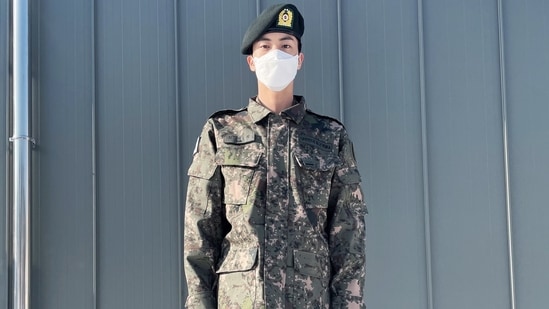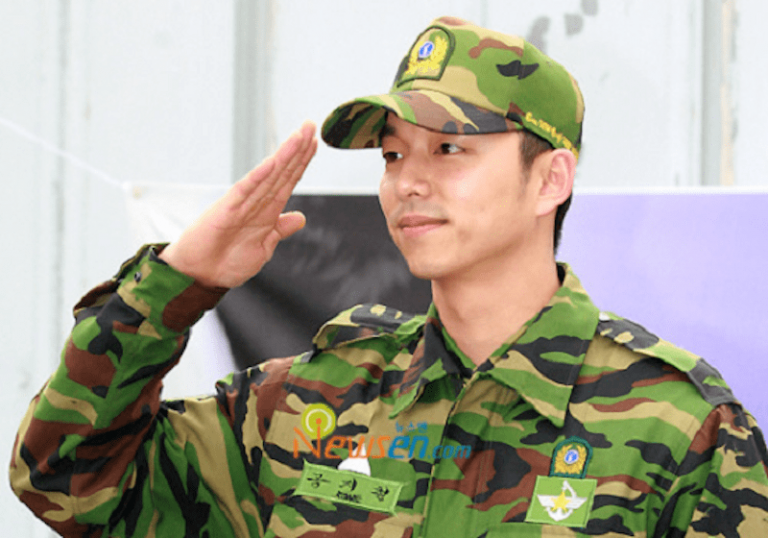Why Do All Korean Guys Go To The Military? Unpacking A National Duty
Have you ever wondered why so many young men in South Korea seem to disappear for a period, only to re-emerge later, often looking a bit different? It's a question that pops up a lot, especially if you follow Korean culture, maybe through K-dramas or K-pop. There's a very specific reason for this common experience, and it's deeply woven into the fabric of the nation.
It's a curious thing, really, to see a whole generation of men go through something so uniform. You might ask, "why, why baby why?" as if seeking a very clear answer to a very big question. Well, the answer is rooted in history and a continuing need for national security. It's not just a tradition; it's a legal obligation for nearly every able-bodied man.
This deep-seated practice shapes individual lives, families, and the country as a whole. We're going to explore what lies behind this universal requirement, looking at the historical backdrop, the laws that govern it, and what it really means for the people involved. It's a story of a nation's resolve, and how that impacts its citizens in a rather profound way.
Table of Contents
- The Historical Roots of Korea's Military Service
- The Law and Who Serves
- Why It Matters: Geopolitics and National Safety
- What Military Service Means for Individuals and Society
- Are There Any Exceptions or Alternatives?
- Current Conversations and Future Thoughts
- Frequently Asked Questions About Korean Military Service
The Historical Roots of Korea's Military Service
To really get a grip on why all Korean guys go to the military, we have to look back a little bit. The story starts, in a way, with the Korean War, which happened from 1950 to 1953. That conflict, you know, never truly ended with a peace treaty. Instead, there was an armistice, which is really just a ceasefire. So, technically, the two Koreas are still at war, even today, in 2024. That's a pretty significant detail, isn't it?
This ongoing state of technical conflict creates a very real need for a strong defense. The border, that is, the Demilitarized Zone or DMZ, remains one of the most heavily fortified places on Earth. It's a constant reminder of the tension. Because of this, maintaining a robust military force is seen as absolutely vital for the country's survival and its safety. It's not just a choice; it's a necessity that grew out of a very difficult past.
So, the idea of universal conscription, or mandatory service, became deeply ingrained. It was about protecting the nation from potential threats, ensuring that there would always be enough people ready to defend the country should something happen. This historical backdrop is truly the foundation for why things are the way they are now. It’s a direct consequence of a war that never quite finished.
The Law and Who Serves
The legal framework for military service in South Korea is pretty clear. The Military Service Act states that all able-bodied male citizens must serve. This typically begins when they are around 18 years old, though most actually start their service a little later, often after high school or even a year or two of college. The age range for service is generally between 18 and 28, but it can extend slightly for certain cases. It's a very broad requirement, so, like, almost everyone is included.
The length of service varies a bit depending on the branch of the military. For instance, those who join the Army or Marine Corps usually serve for 18 months. If you go into the Navy, it's 20 months, and the Air Force requires 21 months. There are also alternative forms of service, like being a public service worker, which might take a bit longer, perhaps 21 to 36 months, but it's still considered fulfilling the military obligation. It's a significant chunk of a young man's life, that's for sure.
This law doesn't really make many exceptions, which is why it feels like everyone goes. Famous people, athletes, and even K-pop idols are not exempt. They all have to put their careers on hold to fulfill this duty. This shows just how seriously the country takes this requirement. It's a shared experience that binds many Korean men together, a very common thread in their lives.
Why It Matters: Geopolitics and National Safety
The primary reason for South Korea's mandatory military service is the ongoing geopolitical situation. The country shares a border with North Korea, and as we touched on earlier, they are technically still in a state of war. This means there's a constant need for vigilance and a strong defense posture. The military acts as a deterrent, a way to discourage any potential aggression from the North. It’s a very practical measure for keeping the peace, in a way.
Having a large, well-trained reserve force is also a key part of this strategy. Even after their active duty ends, men remain in the reserves for several years, typically up to age 40. This means they can be called back for training or in times of national emergency. It ensures that the country always has a deep pool of experienced personnel ready to respond. This system provides a rather robust safety net for the nation.
The presence of U.S. troops in South Korea, while important, doesn't negate the need for a strong domestic military. The combined forces work together, but South Korea must be able to defend itself. So, the mandatory service is a crucial part of its independent defense capabilities. It's about self-reliance, really, and ensuring the country can stand on its own feet when it comes to security. This commitment to national safety is a core principle.
What Military Service Means for Individuals and Society
For young Korean men, military service is a truly transformative period. It's often their first time living away from home, in a very structured and demanding environment. They learn discipline, teamwork, and resilience. Many describe it as a period of significant personal growth, where they mature quickly. It’s a bit like a rite of passage, you know, something almost everyone goes through.
The experience creates a powerful bond among those who serve. They share common stories and challenges, forming friendships that often last a lifetime. This shared experience also contributes to a sense of national unity and collective identity. It’s a very common topic of conversation among men, and it helps them relate to one another. You might even say it helps them understand each other better.
On a societal level, mandatory service instills a strong sense of civic duty and patriotism. It reinforces the idea that every citizen has a role to play in protecting the nation. While it can be challenging for individuals to put their lives and careers on hold, the general consensus is that it's a necessary sacrifice for the greater good. It's a deeply ingrained part of Korean culture, and it shapes how people view their responsibilities to the country. For more insights into national service, you could learn more about conscription on Wikipedia.
Are There Any Exceptions or Alternatives?
While the rule is very broad, there are, in fact, a few specific exceptions or alternative service options. For instance, some athletes who achieve significant international success, like winning an Olympic medal or an Asian Games gold medal, might get an exemption from active duty. Instead, they complete a shorter period of basic training and then serve in a sports-related capacity for a longer term. This is very rare, though, and applies to a very select few.
There are also provisions for individuals with certain physical or mental health conditions that make them unfit for service. They might be completely exempt or assigned to non-active duty roles, such as public service workers in government offices or hospitals. This ensures that only those truly capable of handling the rigors of military life are required to serve in active combat roles. It's a matter of practicality, really.
Conscientious objectors, who refuse military service based on religious or moral beliefs, used to face imprisonment. However, a significant change happened in 2018 when the Supreme Court ruled that such objectors could opt for alternative civilian service. This new option involves working in correctional facilities for a longer period, typically three years, which is almost twice as long as regular military service. This change reflects a growing awareness of individual rights while still upholding the principle of national duty. It's a relatively new development, and it shows the country is, like, adapting.
Current Conversations and Future Thoughts
The topic of military service is always a lively one in South Korea. People often discuss its fairness, especially concerning the exemptions for athletes or the differing lengths of service. There are ongoing debates about whether the system should be reformed, perhaps to be more equitable or to adapt to changing demographics. For example, with birth rates being very low, there might be fewer young men available in the future, so that's a consideration. These conversations are very much alive today, in 2024.
Another point of discussion sometimes centers around the idea of whether women should also be required to serve, or if the service period for men should be shortened. These are complex issues with many different viewpoints, and they reflect a society that is always thinking about its future. It's not a simple "yes" or "no" kind of situation, you know.
Despite these ongoing discussions, the fundamental principle of mandatory service remains strong. It's seen as a critical pillar of national security, given the unique situation on the Korean Peninsula. So, for the foreseeable future, it seems that young Korean men will continue to answer the call to duty, upholding a tradition born of necessity and shaped by a shared sense of responsibility. It's a very real part of growing up in Korea, and it continues to be so. You can learn more about Korean culture and society on our site, and link to this page Understanding Conscription Laws.
Frequently Asked Questions About Korean Military Service
What is the age range for mandatory military service in South Korea?
Most Korean men begin their mandatory military service between the ages of 18 and 28. However, they must complete it before they turn 29 by international age, or sometimes 30 for those pursuing higher education or certain professional paths. So, it's generally in their early to mid-twenties, you know, when they're still quite young.
Do K-pop idols and celebrities also have to go to the military?
Yes, absolutely. K-pop idols, actors, and other celebrities are not exempt from mandatory military service. They are expected to fulfill their duty just like any other citizen. This often means putting their careers on hold for the duration of their service, which can be a big deal for fans. It's a very strict rule, actually, with very few exceptions.
What happens if someone tries to avoid military service in South Korea?
Trying to avoid military service in South Korea can lead to serious legal consequences. This includes potential imprisonment and social stigma. The country takes its conscription laws very seriously, and there are strict penalties for evasion. It's not something people take lightly, so, like, most comply.

Jin shares first pics after joining military service, posts message for

10 Things To Know About South Korean Military Service | uBitto

Do Korean men really want to avoid military service? Inside South Korea